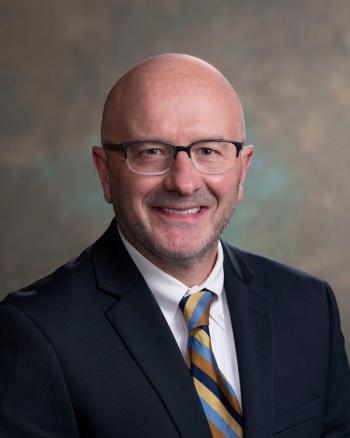
Embrace, Don't Exclude, Physician Assistants as Team Members
My experience as a leader at our hospital is just one example of using physician assistants as a valuable member of the healthcare team.
I believe we need to develop a culture that better values the unique contributions of all members of the healthcare team, regardless of professional title.
The hospital at which I practice has started to implement the final stages of computerized physician order entry (CPOE). We started the process one year ago, but some challenges with compliance with CMS derailed full implementation of the EHR at our facility.
The promise of the EHR is clear. Better, more accurate charting and legibility, better documentation of quality indicators (which are increasingly important to reimbursement), improved patient safety, and hopefully time savings for all.
I have really enjoyed being an informal “super user” of the EHR at our facility for more than a year, and have adopted full and complete use to the extent allowed by the present EHR, as quickly as elements of the EHR have been rolled out to the users.
Many of the trench level EHR/IT folks had recommended me for this role, but apparently, because I didn’t have MD/DO after my name, administrators felt it inappropriate for a physician assistant to mentor and assist physicians in the difficult CPOE implementation phase.
I took the opinion in stride because I know that my physician colleagues in the hospital will continue to count on my experience and technical expertise in the facility’s EHR as they already do.
There is no doubt that when it comes to medicine, my supervising physician and all the physicians, with whom I work, have decidedly more training than I do and have a deservedly higher status in the medical hierarchy. However, after 31 years of practice, I have developed significant medical expertise in my core areas, and the physicians I work with recognize my commitment and contributions to quality patient care.
When it comes to computers and technology, I have a significantly above-average level of experience and expertise that transcends my professional role as a healthcare provider. Everyone in life and on the medical team has a skill and ability at which they excel.
That is the promise of societal diversity, education, and experience.
It is important to recognize the contribution that everyone plays in the healthcare system, and in life. I work every day with a significant number of high level surgeons and specialists, and I can think of no one on staff who would not welcome my help in the inevitable challenges and pitfalls that are coming with hospital-wide implementation of the CPOE.
On a global scale, the administration’s hesitation is an example of the distance we still have to travel when it comes to medical staff integration. This and other issues will continue to present barriers to that integration as non-physician medical staff membership continues to expand.
PAs play a variety of roles on the healthcare team - from clinicians to administrators to educators. Effective physician/PA teams capitalize on the strengths of all team members to improve efficiency and quality patient care.
I’m fluent in what all clinicians I work with need to know to survive this transition, and while I understand where the administration is coming from, as well as their sensitivity to this issue, I think that these sorts of actions contribute to the slow integration of team practice in medicine, and serve only to highlight the divisions on medical staff in detriment to the overall mission of the hospital.
PAs, by their education, are dedicated to patient-focused, coordinated, team-based care. Yet clinicians and administrators need to embrace the shifting paradigm of delivering healthcare in the United States in the 21st century. The emphasis on quality, coordinated care over the quantity of patients treated is already here.
Change is always a difficult journey, and I have seen much of it as a state and national PA leader for 20 years. I work hard to be a good team member, and a good example of team practice, but still get frustrated with the subtle and not so subtle barriers to a cohesive, integrated medical team.
The bottom line is that we will get CPOE implemented at our facility, and we will become a better physician-led team, because that is what the healthcare system requires to meet its present and future needs.
Let’s all agree to work a little harder at integration and cohesiveness, and let us value the unique contributions of all members of the healthcare team, regardless of professional title.
Find out more about Stephen Hanson and our other
Newsletter
Optimize your practice with the Physicians Practice newsletter, offering management pearls, leadership tips, and business strategies tailored for practice administrators and physicians of any specialty.






